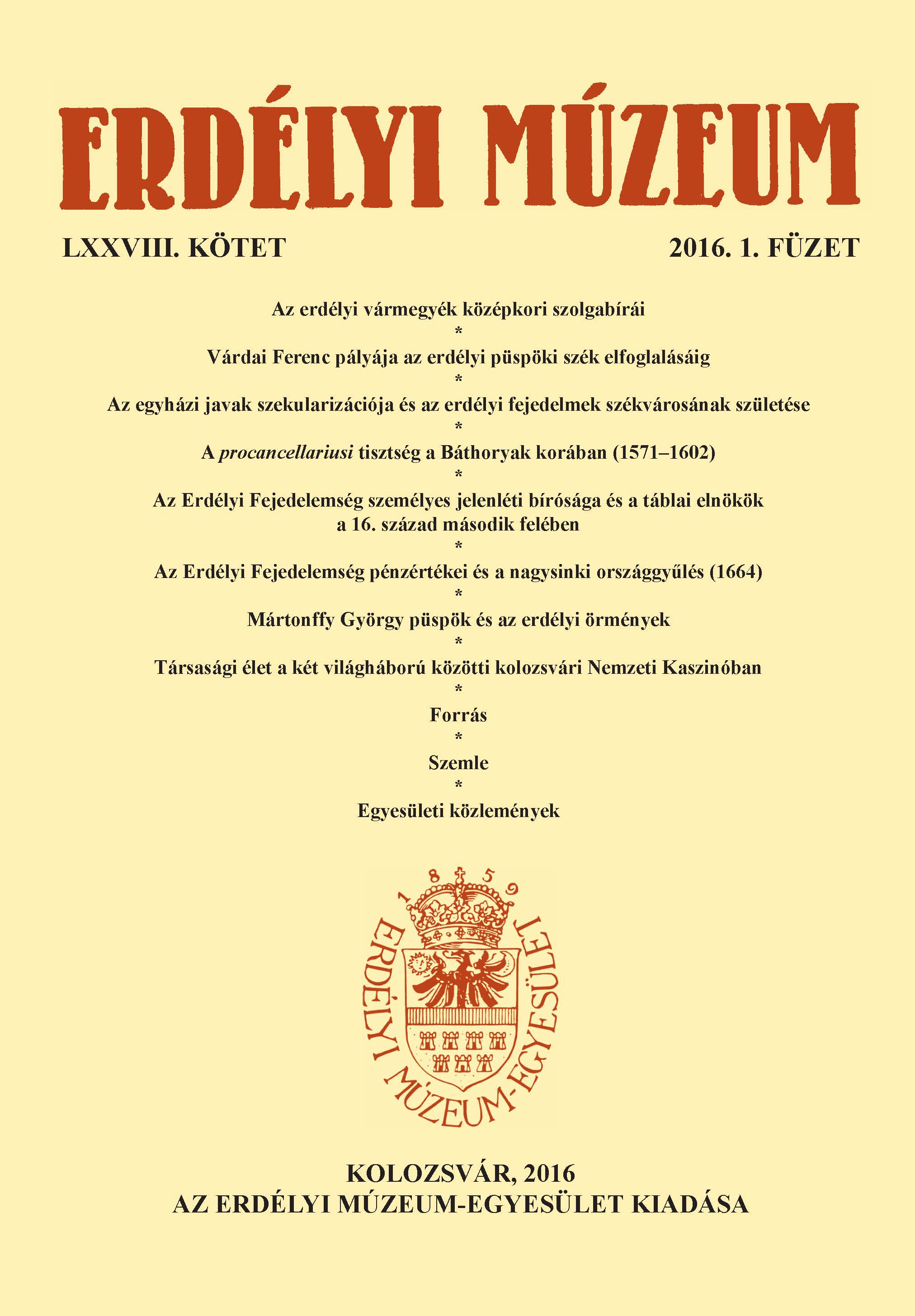Az erdélyi vármegyék középkori szolgabírái
The Iudices Nobilium of the Transylvanian Counties in the Middle Ages
Author(s): András Kovács W.Subject(s): History, Diplomatic history, Political history, 13th to 14th Centuries, 15th Century
Published by: Erdélyi Múzeum-Egyesület
Keywords: Transylvania; Middle Ages; iudex nobilium; county authorities
Summary/Abstract: The office of iudex nobilium (szolgabíró) was created by royal authority in Hungary in the 1270s, and it was introduced shortly afterwards in Transylvania as well, most probably by the king’s local representative, the voivode of Transylvania. Iudices nobilium are mentioned in Transylvanian documentary sources already in the first decades of the 14th century in each of the counties; their number becomes settled later at two per county. They formed, together with the comes (ispán) and the county notary, the authorities of the “noble” county, as literature calls it. The two iudices nobilium were elected by the county nobility from their own circles. Their participation as co-judges in the judicial sessions (congregatio generalis) held by the voivodes for the Transylvanian nobility can be documented since 1327 and up to the abolishment of these in 1412. In addition to judicial activity, they executed orders of the central authorities as well: in most of the cases one of the iudices nobilium carried out inquiries ordered by the voivode or vice-voivode; there were some cases however when the inquiries were led by another nobleman from the county, at the request of and chosen by the plaintiff (in cases when the scene of the inquiry was far from the home of the iudex nobilium, or when this latter was hindered by other circumstances). Iudices nobilium were local smallholders, who did not hold any offices of greater importance, though in some cases became comites of their county.
Journal: Erdélyi Múzeum
- Issue Year: LXXVIII/2016
- Issue No: 1
- Page Range: 1-12
- Page Count: 12
- Language: Hungarian

